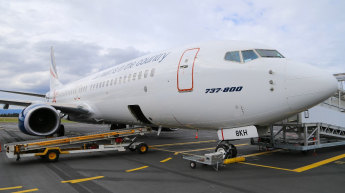Foreign nationals will no longer be allowed to enter Australia if they have visited Italy in the past 14 days, Scott Morrison announced, in a major escalation of the nation’s coronavirus travel ban.
The restriction will officially come into force from 6pm on 11 March, and follow similar provisions already in place for visitors from Iran, China and South Korea.
The move follows Italy imposing an unprecedented nationwide lockdown to try to contain the virus.
Our highest priority remains the safety of Australians. Today, based on expert advice on #coronavirus, we’re implementing travel restrictions for foreign nationals who are in or have been through Italy. This is consistent with those in place for China, Iran and Republic of Korea. pic.twitter.com/QVW26sY6tV
— Scott Morrison (@ScottMorrisonMP) March 11, 2020
Prime Minister Scott Morrison said on Wednesday, “This, of course, will mean that any Australians, residents or others, who are obviously exempt from those travel bans, would be subject to the same isolation period that applies to the other countries for which there are travel bans.”
The Prime Minister also announced a $2.4 billion health fund to help tackle the coronavirus epidemic.
“$1.2 billion of that will actually, we anticipate, be spent this financial year, particularly as the virus and its impacts ramp up in the months ahead,” he said.
“That health response covers the areas of primary care, support in aged care, support in the hospital system. Ensuring, importantly, that the most vulnerable parts of our community are very much in our attention.”
Last week, Prime Minister Morrison added South Korea to the travel ban that initially covered China, but held back on extending it to Italy.
Instead, travellers from the European country faced “advanced screening measures”, which included having their temperatures checked at the airport.
All current bans are set to expire on Saturday, though the country is likely to extend them once again on Thursday.
The decision will be made by the Australian cabinet’s National Security Committee based on an update from federal and state chief medical officers.















